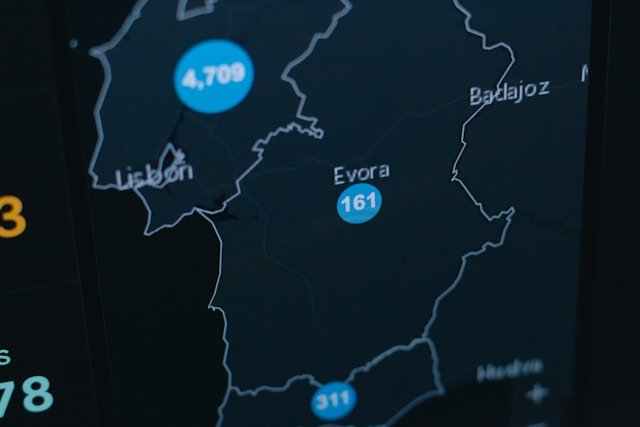
Study in Portugal: Is It Really Free?
If you’re planning to study abroad, I’m pretty sure you’ve heard the phrase “you can study in Europe for free” many times, but is it actually true? Let’s find out. Since my time off in Portugal, I received numerous comments from you guys saying, “Ismail, write a blog about education/studying in Portugal because Portugal is in Europe, and study in Europe is almost free.” So in today’s blog, we’ll be talking about education in Portugal, and by the end, we’ll find out if Portuguese education is actually free and how you can lower your tuition fees. Go get yourself a cup of tea, and let’s get started.
The Education System in Portugal

The system of study in Portugal is pretty similar to many other countries. You have preschool, then primary school, secondary school, and then higher education. Unlike in Canada or the US, there are no colleges in Portugal. You can either go to a public university or a Polytechnic university. By the way, Polytechnic universities can be both private and public. But what is a Polytechnic university, you ask? It’s basically like a college if you want to study something hands-on. If you want more practical education and training, then a Polytechnic university is your choice.
As in other countries, there are three types of programs available in Portugal: bachelor’s degrees, master’s degrees, and doctorate degrees. Both universities and polytechnic institutions, as they’re called here, offer bachelor’s and master’s programs.
Studying in Portuguese or English

Oh hey, I didn’t notice you there! Did you know that in Portugal, you can study in Portuguese, but if your Portuguese isn’t good enough, you can study in English? And if English isn’t good enough, well, I have a gift for you! Many of you know that I’ve been learning German with Lingua for the past year or so, and I honestly love it. Lingua is an online language school where you can choose between studying English, Business English, Spanish, German, or French. My favorite part about Lingua is that you can study from anywhere, anytime, on any day. It’s all up to you.
Since it’s the holiday season, Lingua has prepared a gift for you. If you’ve been wanting to improve your language skills or learn a new language, Lingua gives you a free week of classes. You can take three group classes or one private class for free. If you decide to continue, you’ll get 30 percent off your initial deposit. So, if you’ve been waiting for a sign to start, here it is! Enjoy your free week and 30 percent off, and I’ll see you in class.
Universities and Polytechnics in Portugal

As for universities, there are currently 14 public universities and 36 private universities in Portugal, along with 20 public and 64 private polytechnic institutions. The highest-ranked universities are the University of Lisbon, the University of Porto, the University of Coimbra, and Nova University of Lisbon. Let’s be honest—they’re not top-ranked universities globally, but they are ranked somewhere around 400th, and they offer good quality education for both local and international students. Rumor has it that J.K. Rowling was inspired by Portuguese universities and students when writing Harry Potter, but I feel like that’s a topic for another blog. If you want a blog about J.K. Rowling and universities, don’t forget to DM me!
The largest university is the University of Lisbon, of course, because it’s in the capital and has around 50,000 students. The second-largest is the University of Porto, and the oldest university is the University of Coimbra.
Tuition Fees: What Does it Cost?

As I mentioned before, the programs are similar to those at universities worldwide—you have bachelor’s, master’s, and doctorate programs. But what about the prices? Ismail, how affordable is it to study in Portugal?
Let’s talk about the prices for locals first. If you’re planning to get your bachelor’s degree, be prepared to pay somewhere between €500 and €1,000 per year. For a master’s degree, fees can vary from €500 to €2,500 per year. If you want to study, say, at the University of Madeira, it’s going to be around €4,000 per year. But don’t forget that if you’re an international student, the fees might be slightly higher. Still, compared to Canada or the US, where tuition can be €12,000 to €15,000 per year, Portugal is affordable, especially knowing that you can get a European passport after five years (but we’ll talk about that later).
If you’re a European citizen, you can always enroll in a university in your home country. If they participate in the Erasmus program, which is an exchange program, you can spend a year studying in Portugal and then return to your university or go to another one. Private universities will, of course, be more expensive, with some programs costing around €7,000 to €10,000 per year. But compared to other countries like Australia, the UK, Switzerland, the US, and Canada, Portugal is still quite affordable.
Entry Requirements and Scholarships
The entry requirements are pretty much the same as anywhere else in the world. You’ll need your grades, aka transcripts. If you’re applying for a bachelor’s degree, you’ll need your school transcripts. If you’re applying for a master’s degree, you’ll need your university transcripts, along with an English exam. Some universities in Portugal may ask you to write entrance exams. For example, if you want to study medicine in Canada, you have to write chemistry and biology exams, and it’s the same here. If you want to pursue a bachelor’s in medical science, be prepared to write entrance exams.
But Ismail, you mentioned that you can lower your tuition fees! Yes, my friends, there are scholarships available for both local and international students. Scholarships are available for EU residents, non-EU residents, and students from specific countries. All this information can be found on the university’s websites, as it changes yearly. Another way to save on tuition fees is to file taxes in Portugal. I’ve heard you can get up to 30 percent of your tuition fees back, so it might be worth talking to an accountant about it!
Getting Residency: Is a Portuguese Passport Possible?
As I mentioned earlier, you can get your passport after five years. The thing with Portuguese immigration is that it’s a bit unclear. Some sources say you can study for five years, complete your bachelor’s and master’s degrees, and then apply for permanent residency or a passport. Others say it’s more complicated, but theoretically, it is possible. I’ve also spoken to a school representative who confirmed this PR/passport pathway is available, even if you’ve studied for less than five years. You get a one-year residence permit to find a job and settle in.
Why Choose Portugal?
So, why should you choose Portugal over Canada, the US, or the UK? First of all, the climate! People on this channel know I’m not a fan of 300 sunny days per year, but most people love it. If you’re coming from a colder country like Canada or the US, you’ll appreciate the warmth. Second, Portugal has been developing a lot, with many startup programs and business incubators, so Lisbon is a great place to be if you want to start your own business. Lastly, Portugal is an amazing hub for travel. If you book your tickets in advance, you can travel to other countries for as little as €30-€40. When you’re a student, that’s an amazing opportunity, and even if you’re on a budget, you can always work while studying.
Conclusion
I feel like Portugal is an underrated destination for international students, but I hope this blog helps you learn more. If you have any questions, leave them in the comments, and I’ll see you next week. Bye!


